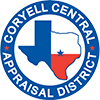What is Property Tax?
Property taxes are local taxes that are assessed locally, collected locally and used locally. You pay your property taxes to the local tax collector. The tax collector distributes funds to schools, cities, and other local governments. Local governments spend the funds on schools, roads, hospitals, police departments, fire departments, and other programs.
Who is responsible for setting Property Taxes?
County Appraisal Districts appraise the value of your property. Appraisal Review Boards settle disputes between taxpayers and property owners. Local Taxing Units set budgets and property tax rates. County Assessor Collectors collect taxes from property owners and distribute the funds to the local taxing units.
What are my rights under the Texas Constitution?
The constitution sets out five basic principals for property taxes in our state.
Taxes must be equal and uniform. No single property or type of property should pay more than its fair share. Property must be appraised on its current market value. The price it would sell for when both the buyer and seller seek the best price and neither is under pressure to buy or sell. Each property in a county must have a single appraised value. This is guaranteed by the use of the county appraisal districts. All property is taxable unless federal or state law exempts it from the tax. Property owners have a right to reasonable notice of increases in their appraised property value.
More information on the Texas Property Tax Code can be found at http://comptroller.texas.gov/taxinfo/proptax/index.html.
What are my remedies?
If you believe that your property value determination is too high or if you were denied an exemption or special appraisal valuation, you may protest to your ARB. If you do not agree with the decision of the ARB you may take your case to binding arbitration in some instances or to district court. You may speak during public hearing when your elected officials are deciding how to spend you taxes and are setting the tax rate. You may limit major tax increases through elections to roll back or limit tax rates.
When is the deadline for paying my property taxes?
Taxes are due when you receive your tax statement. Tax collections begin around October 1 and taxpayers have until January 31 of the following year to pay their taxes. On February 1, penalty and interest charges begin accumulating on most unpaid tax bills.
What happens if I don’t pay my taxes?
The longer you allow delinquent property taxes to go unpaid, the more expensive and risky it becomes for you. You will have penalty and interest charges added to your taxes, you will receive delinquent tax notices; you may be sued; and you may face problems in selling you property. Check with the tax collector, you may have the option to set up an installment plan.
Why did I receive a Tax Statement from two counties?
If your property boundaries span more than one county you will receive tax statements from each county tax office.

